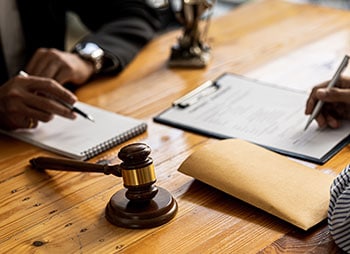
Every lawsuit is a story. When a client comes into my office for the first time, I want to hear their story. Before I take on a new client, I need to hear what happened. Inevitably, at the end of the story, the potential client always asks me a simple question: “do I have a case?”
The answer to that simple question is almost never simple and always unique. Every case I take has three main components: an injury, liability, and a defendant. These are the three pillars of every personal injury case. With these three pillars you may have a case. Either way, I always recommend calling a lawyer and scheduling a consultation to learn about your legal options. My firm provides a free initial consultation to help you understand your rights.
Injury
An injury is the first pillar of any personal injury case. How were you hurt? Did you break your leg? Did you hurt your back? Did you go to the emergency room? Did you need surgery or physical therapy? If you were hurt, you may have a case.
Liability
Liability is the second pillar of any personal injury case. The question is: who messed up and caused your injury? If you fell because you were drunk, or crashed your car because you weren’t paying attention, that’s your fault: you probably don’t have a case. If someone else was drunk, or rear-ended you at a stop light or was speeding, you may have a case.
Defendant
The last thing any personal injury case needs is an insurance company or corporation with the ability to pay a judgment or settlement. The unfortunate truth is this: a defendant who has no money, can’t and likely won’t pay a settlement or judgment. Lawyers have a term for this: judgment-proof. A defendant who doesn’t have any assets or income simply won’t be able to pay a judgment. Instead, they’ll likely declare bankruptcy or just ignore the judgment.
This is why I always advise my clients to carry a so-called “full coverage” insurance policy. Such a policy will include “uninsured and underinsured motorist” protection. These so-called “UM/UIM” policies will cover your injuries even if the other driver didn’t have insurance.

Call For A Free Consultation
(312) 586-2820